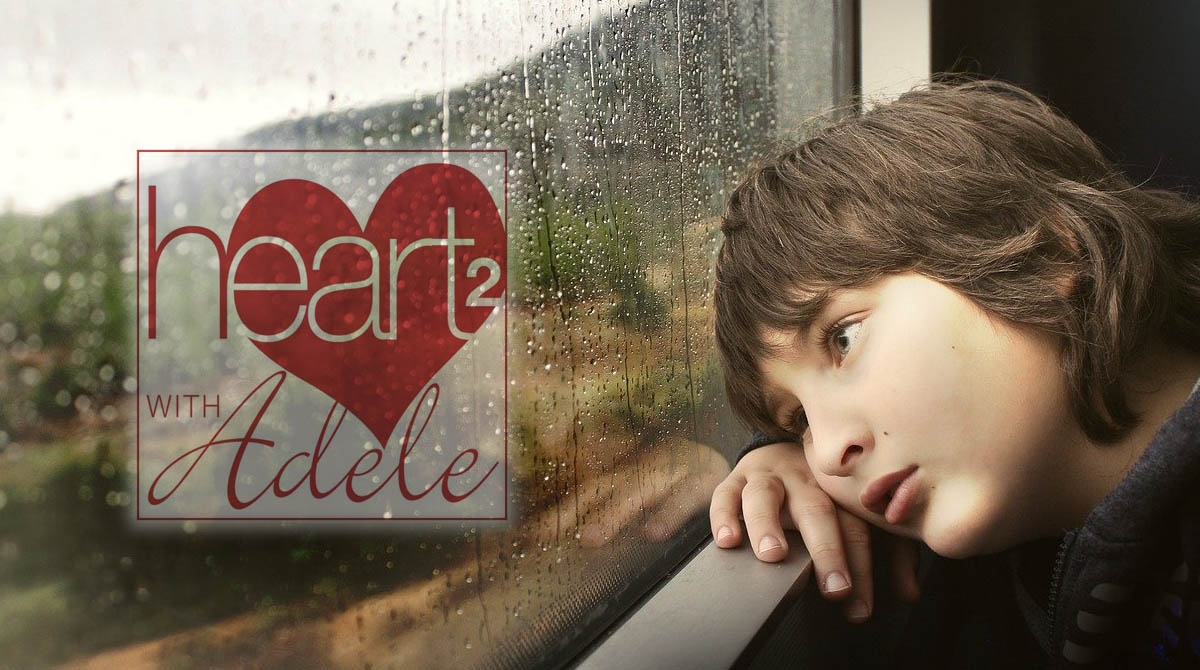
When your child complains of boredom
QUESTION
Dear Adele,
Our school-age children often whine that they are bored. Despite having rooms full of books and devices, a family room replete with toys, and scheduled extracurricular activities during the week, we still get this complaint. What do you make of it and what can we do to eliminate it?
Irritated
ANSWER
Dear Irritated,
Believe it or not, your children often talk in code! Your job as the parent is to figure out the codes. Once you’ve done that you will be in a much better position to know how to address the issues your children are presenting.
In this case, you regularly hear the phrase “I am bored”. But what does it really mean? Could it be that your child is trying to get your attention? Could he be saying “I need you and want more of your time?” Maybe it means your child is lazy and doesn’t want to put any effort into thinking up his own ideas and activities. He could even be telling you he is hungry! Once you crack the code you will be able to choose some strategies that fit with the challenges your children are presenting with boredom.
Sometimes parents feel guilty when their children complain of boredom. They should not. Always remember that it is not the parents’ monkey, as they say. Not their problem.
The role of the parent is to ensure that the child has lots of choices by providing such things as craft supplies, puzzles and games, books and outdoor play equipment. It is also good to offer involvement with your activity to a child as one of the options. Sometimes offering to involve your offspring in housework with you, quickly helps them find other more desirable activities.
Today’s world can make it difficult for children to deal with boredom. They are used to being highly entertained, at a fast pace, by technology. Most children have a great number of material things, convinced of their necessity by advertisements on technology. Some are overscheduled in extracurricular activities. Children, very young, are in structured daycare settings all day and school-aged children have before and after school structured activities, as well.
Unstructured free outside play is not regularly encouraged in our culture because of stranger danger. In addition, the prevalence of social media in our lives makes children feel they need to be leading exciting lives, all the time. Hence the kids have little opportunity or practice at filling free time constructively at home and when confronted with it, may say they are bored.
You might be surprised to learn that experiencing boredom has some benefits. An article by Gia Miller entitled ‘The Benefits of Boredom’, suggests that boredom is an opportunity to do things by choice, often new things. It helps build life skills like initiative. It provides an occasion to develop a tolerance for frustration or less than ideal situations. It helps promote problem-solving skills and builds confidence. As well, children can practice regulating their emotions, flexibility and organizing their own time. Finally, it promotes creativity, imagination, and greater happiness.
So, what to do with it you ask? Why not brainstorm a list of free unstructured activities with your children and post the ideas in a place where they are accessible? This could be a chart or list placed on the refrigerator or a jar filled with activity cards that could be selected at random. This could include such things as a bug hunt, fort building, Lego, puzzles, reading, a craft activity, board games, or practicing a sports skill. When your child says he’s bored he could be redirected quickly to the list or the jar. Then let the child figure out his own self-entertainment and problem solve for himself. After, you can reinforce your approval of this behaviour, by offering praise when your progeny is independent.
If you want to help a little, you might offer two options which would fill the free time and then withdraw from the discussion, leaving the decision up to the child. For example, you could offer ideas for using his art supplies or construction ideas for his Lego set perhaps.
Some families find it helpful to have a daily schedule posted so the children know the length of their free time. Young children should be able to manage filling their time for about 15 minutes and school-aged children and teenagers a minimum of 40 minutes.
Miller suggests you respond to the “I’m bored” statements with something like, “Wonderful! I can hardly wait to see what you will choose to do.”
I will conclude with a few inspiring quotations about boredom:
“Boredom always precedes a period of great creativity.” — Unknown
“I would rather die of passion than of boredom.” — Vincent van Gogh
“Is life not a thousand times too short, for us to bore ourselves.” — Frederick Nietzsche
Sincerely, Adele
I'm looking forward to your questions! Email me at maryadeleblair@gmail.com and please put Heart to Heart in the subject line. Note that all columns will remain anonymous.
PHOTO: Pixabay









